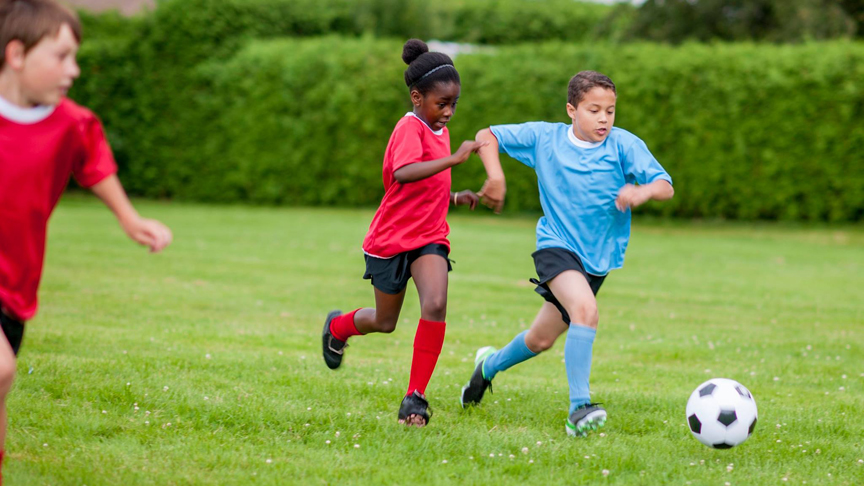- Behavior
- Education
- Health
Ages 11-14: Giving cold shoulder? Don’t worry, it’s sign of maturing

In this article, you’ll find answers to questions like:
1. Should all kids develop at the same rate?
2. What are key milestones for late middle childhood (11 years)?
3. What are key milestones for young teens (12-14)?
What’s up with your teen? Giving you the silent treatment? Moody? Even rude?
Well, try not to be offended. It’s actually part of their normal development.
As parents, we often hear the term developmental milestones and know it’s important our children hit these markers at key moments of growth. But what exactly do child development specialists mean by that phrase?
1. SHOULD ALL KIDS DEVELOP AT THE SAME RATE?
“First, it’s important to remember that every child is an individual,” says Randee Gabriel, programs manager at 211 Palm Beach/Treasure Coast. “There are no two children that will hit every milestone at the exact same time. Still, there are crucial cues to look for at each age.”
Here’s some insight from the U.S. Centers for Disease Control and Prevention on what’s normal for your child’s development at this stage.
2. WHAT ARE MILESTONES FOR LATE MIDDLE CHILDHOOD (11 YEARS)?
This is an important time for children to gain a sense of responsibility, along with their growing independence. Also, physical changes of puberty might be arising by now, especially in girls. You may notice your child:
- Forming stronger, more complex friendships and peer relationships; becoming more emotionally important to have friends, especially of the same gender
- Experiencing more peer pressure
- Becoming more aware of their body as puberty approaches; body image and eating problems may start around this age
- Facing more academic challenges
- Becoming more independent from the family
- Beginning to understand others’ points of view
- Attention span increasing
3. WHAT ARE MILESTONES FOR YOUNG TEENS (12-14)?
This is a time of many physical, mental, emotional and social changes. At this age, teens make more of their own choices about friends, sports, studying and school. They become more independent with their own personality and interests, although parents are still important. You may notice your child:
- Showing more concern about body image, looks and clothes
- Focusing on themselves; going back and forth between high expectations and lack of confidence
- Experiencing more moodiness
- Showing more interest in and influence by peer group
- Expressing less affection toward parents, even to point of rudeness or short tempers
- Feeling stress from more challenging schoolwork
- Developing eating problems
- Feeling sadness or depression, which can lead to poor grades, alcohol or drug use, unsafe sex and other problems
“Every age group brings within itself new changes and skills required,” Gabriel says. “Rescreening at each interval is imperative to identify these shifts and ensure healthy development over the long term.”
SOURCES:
• Randee Gabriel, programs manager, 211 Palm Beach/Treasure Coast
• Centers for Disease Control and Prevention, U.S. Department of Health and Human Services
You May Also Like
-
- Education
- Parenting
Struggling to get that homework done? Just reach out for help
Students succeed when their parents are involved and motivated to help with homework. Did you know the Palm Beach County Library system is a prime source for help? Our local expert …
Read More -
- Behavior
- Health
- Parenting
Don't sweat it: Let us guide you on the sex talk with your teen
It’s best to listen first before answering questions about sex and gender identity. Read on for more tips and advice from our local experts on how to make these topics easier and l …
Read More -
- Behavior
- Health
- Parenting
Discover calming ways to help your family manage stress
To help reduce tension, start by identifying triggers. If you're worried about your teen's behavior, tap here for local organizations that can help. …
Read More
Related resources
-
- Behavior
- Health
- Other
Urban League of Palm Beach County
Teen Outreach Program (TOP), a free development program to build self-esteem, confidence and goal-setting among middle and high school students
561-833-1461, ext. 3039 Website -
- Behavior
- Parenting
- Safety
211 Palm Beach Treasure Coast
Teen hotline, including online chat from 10 a.m. to 8 p.m. daily. Or, texting available 24 hours a day by texting your ZIP code to 898211.
2-1-1 Website Email -
- Behavior
- Education
- Health
School District of Palm Beach County
School Counseling — fosters academic achievement, college and career readiness, and social/emotional development
561-434-8233 Website -
- Behavior
- Health
- Parenting
Children's Behavioral Health Collaborative - Palm Beach County
A collaboration of five local mental health agencies that assess and treat children's serious behavioral, emotional or mental health problems
561-244-9499 Website -
- Behavior
- Health
- Other
National Alliance on Mental Illness Palm Beach County
Family-to-Family — free 12-session course for caregivers of family members with severe mental illness
561-588-3477 Website Email
